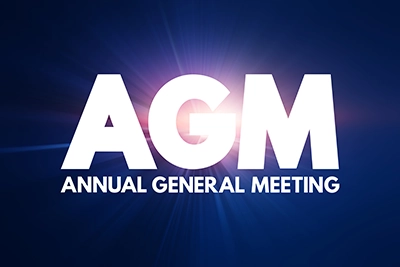Regulator consults on new consumer standards
Following the passage of the Social Housing Regulation Act which received Royal Assent on 21st July 2023, the Regulator of Social Housing (RSH) has launched its consultation on the proposed new consumer standards that will underpin the regulation of the sector from April 2024. The consultation will run for 12 weeks ending on Tuesday 17th October 2023
These new standards reflect the RSH’s expanded consumer regulation objective which now includes safety, transparency, and energy efficiency. Changes will strengthen the accountability of landlords for ensuring the quality and safety of their homes as well as driving greater landlord accountability to their tenants. There is also a much greater focus on transparency, organisational culture and giving tenants greater power to hold landlords to account.
Overview of the proposed new standards
- Safety and Quality Standard
- Replaces the existing Home Standard with a broader focus that explicitly includes safety.
- Landlords must have accurate up-to-date stock condition information and ensure their homes comply with ‘all relevant requirements’. This will require detailed knowledge based on a physical inspection of all homes at an individual property level.
- Properties must be maintained to at least the Decent Homes Standard (or its replacement) with effective systems to identify and tackle any non-decency where it occurs.
- Timescales will be introduced for acting on health and safety assessments.
- On repairs, maintenance, and planned improvement programmes there will be a greater emphasis on the outcome for tenants. Services must be ‘effective, efficient and timely.’
- On adaptations there is an expectation that registered providers assist tenants seeking adaptations to access appropriate services, with the objective of improving outcomes for tenants.
2.Transparency, Influence and Accountability Standard
- This aims to remove barriers for tenants in accessing their landlord and its services. It includes explicit requirements to treat tenants with fairness and respect so they can access services, make complaints, influence decision making and hold the landlord to account.
- Landlords must consider tenants’ diverse needs, using relevant information and data to inform and adapt their services, ensuring fair access to services and equitable outcomes for all tenants.
- There should be a number of routes and meaningful opportunities for tenants to influence and scrutinise strategies, policies and services.
- Landlords need to make effective use of the information they get from engagement, taking tenants views into account in their decision making.
- Landlords must identify a dedicated person responsible for complying with the consumer standards.
- Where a significant change in management arrangements is proposed, the landlord must consult meaningfully with tenants on the actual or potential advantages and disadvantages, including costs, in both the immediate and longer-term.
- Neighbourhood and Community Standard
- Sets out expectations in relation to ‘shared spaces’.
- Landlords are expected to work co-operatively with other organisations to resolve issues affecting the upkeep and safety of neighbourhoods in which tenants live.
- Landlords are required to have set out their approach to deterring and tackling hate crime incidents.
- Landlords are required to have clear policies to support tenants affected by anti-social behaviour and domestic abuse, working with other agencies as appropriate.
- Tenancy Standard
- Sets out requirements on lettings, tenancy sustainment and evictions. Arrangements must be fair and transparent throughout.
- Registered providers are expected to assist local authorities to meet homelessness duties, e.g. nomination agreement obligations.
- Adapted homes should be allocated to meet needs compatible with the purpose of the housing.
CWAG Newsletter – August 2023
This Update includes the following

Regulator Consults on new Consumer Standards
The Social Housing Regulation Act 2023 received Royal Assent on 21st July 2023 paving the way for significant changes including enhanced consumer regulation of social housing. As expected, following the passage of the legislation, the Regulator of Social Housing (RSH) has launched its consultation on the proposed new consumer standards that will underpin the regulation of the sector from April 2024.
The four new consumer standards proposed are:
- The Safety and Quality Standard
- The Transparency, Influence and Accountability Standard
- The Neighbourhood and Community Standard
- The Tenancy Standard
These new standards reflect the RSH’s expanded consumer regulation objective which now includes safety, transparency, and energy efficiency. Changes will strengthen the accountability of landlords for ensuring the quality and safety of their homes as well as driving greater landlord accountability to their tenants. There is also a much greater focus on transparency, organisational culture and giving tenants greater power to hold landlords to account.
The consultation will run for 12 weeks ending on Tuesday 17th October 2023
Overview of the proposed new standards
1. Safety and Quality Standard
- Replaces the existing Home Standard with a broader focus that explicitly includes safety.
- Landlords must have accurate up-to-date stock condition information and ensure their homes comply with ‘all relevant requirements’. This will require detailed knowledge based on a physical inspection of all homes at an individual property level.
- Properties must be maintained to at least the Decent Homes Standard (or its replacement) with effective systems to identify and tackle any non-decency where it occurs.
- Timescales will be introduced for acting on health and safety assessments.
- On repairs, maintenance, and planned improvement programmes there will be a greater emphasis on the outcome for tenants. Services must be ‘effective, efficient and timely.’
- On adaptations there is an expectation that registered providers assist tenants seeking adaptations to access appropriate services, with the objective of improving outcomes for tenants.
2.Transparency, Influence and Accountability Standard
- This aims to remove barriers for tenants in accessing their landlord and its services. It includes explicit requirements to treat tenants with fairness and respect so they can access services, make complaints, influence decision making and hold the landlord to account.
- Landlords must consider tenants’ diverse needs, using relevant information and data to inform and adapt their services, ensuring fair access to services and equitable outcomes for all tenants.
- There should be a number of routes and meaningful opportunities for tenants to influence and scrutinise strategies, policies and services.
- Landlords need to make effective use of the information they get from engagement, taking tenants views into account in their decision making.
- Landlords must identify a dedicated person responsible for complying with the consumer standards.
- Where a significant change in management arrangements is proposed, the landlord must consult meaningfully with tenants on the actual or potential advantages and disadvantages, including costs, in both the immediate and longer-term.
3. Neighbourhood and Community Standard
- Sets out expectations in relation to ‘shared spaces’.
- Landlords are expected to work co-operatively with other organisations to resolve issues affecting the upkeep and safety of neighbourhoods in which tenants live.
- Landlords are required to have set out their approach to deterring and tackling hate crime incidents.
- Landlords are required to have clear policies to support tenants affected by anti-social behaviour and domestic abuse, working with other agencies as appropriate.
4. Tenancy Standard
- Sets out requirements on lettings, tenancy sustainment and evictions. Arrangements must be fair and transparent throughout.
- Registered providers are expected to assist local authorities to meet homelessness duties, e.g. nomination agreement obligations.
- Adapted homes should be allocated to meet needs compatible with the purpose of the housing.
- Providers should also have policies to address under-occupation and overcrowding.
- Explicit obligation to prevent and tackle tenancy fraud.
- The current requirement to minimise the time a property is vacant between lettings is removed as this is primarily an economic issue – now the greater focus is on fairness and transparency.
Regulator publishes Annual Review of Consumer Regulation
The RSH has published its annual ’Consumer Regulation Review’ for 2022/23. This sets out key learning and case studies from the Regulator’s consumer regulation casework over the past year.
Issues around local authority compliance are specifically highlighted this year, as ten of the thirteen registered providers who breached the consumer standards were local authorities.
Cases involved the ‘Big Six’ Health and Safety issues including the following:
- Authorities that didn’t have the data required to provide assurance that they were compliant and therefore keeping tenants safe.
- Authorities with significant backlogs in carrying out vital safety checks.
- Failure to comply with legal requirements in respect of fire safety, either by failing to complete the relevant inspections and assessments or failing to complete follow-on remedial works.
- For the first time in a number of years there were landlords who were failing to meet gas safety requirements despite these regulations having been in place for over 20 years.
The report and case studies highlight the importance of councillors and other senior leaders understanding their core landlord responsibilities. Regardless of management arrangements landlords must take responsibility for ensuring they are fully compliant with regulatory requirements and have mechanisms in place to identify and tackle under-performance.
Key issues highlighted by the Regulator from it’s recent casework:
- Landlords must maintain a tight grip on the quality of the homes they manage
- Local authorities must act now to ensure compliance with the consumer standards
- Effective tenant engagement is fundamental to meeting the requirements of the consumer standards
- Meeting statutory health and safety requirements, including landlord gas safety requirements, remains an area of regulatory concern


Diary Date :CWAG Annual General Meeting
This year the CWAG Annual General Meeting will be on Thursday 28th September 2023. The meeting will take place over Teams. Please note the date in your diary.
The formal business of the AGM involves electing representatives of the Executive Group as well as reviewing the group’s finances and operating arrangements and Terms of Reference.
We are currently putting together the programme which will include presentations and discussion around regulatory changes and the professionalisation agenda.
CWAG Work Programme Review
As part of preparations for the CWAG Annual General Meeting, CWAG Executive Group will be reviewing and updating the CWAG work programme to reflect priorities for the next 12 months. The updated work-programme will then be considered by the membership at the AGM.
We are keen to have members’ views and suggestions to inform this exercise. If you have any suggestions or would like to contribute to the work-programme review, please contact the Policy Officer.
Recent Publications
On the Edge – Cost-of-living findings from the council sector – Joint NFA / ARCH Report – 2nd August 2023
This latest joint NFA / ARCH survey of the income collection and welfare benefits issues facing councils highlights significant rises in rent arrears over the past year. In looking to understand the drivers of current trends, the report identifies the impact of severe inflationary pressures which impact disproportionately on the poorest households as well as a welfare system that isn’t for purpose. The system of Discretionary Housing Payments (DHPs) is also under increasing strain with reducing resources and increasing numbers requiring assistance.
English Housing Survey (EHS) 2021/22 – Energy Report – Published by DLUHC – July 2023
This latest update survey of peoples housing circumstances is one of the longest running national surveys providing data back to 1967. This report focusses on energy efficiency and provides an overview by tenure, dwelling type and household characteristics. It includes information on different heating systems and controls, the methods of payment used by households to pay for their energy as well as the cost involved in uprating homes to Energy Efficiency Rating (EER) band C. There is also an analysis of working from home patterns by income and tenure.
CWAG Newsletter – July 2023

This Update includes the following
Learning from the First Round of Consumer Regulation Inspection Pilots
Many CWAG members attended the recent NFA webinar where we were able to hear directly from the Regulator of Social Housing (RSH), Eastbourne Council and their ALMO Eastbourne Homes about the experience and learning from the participation in the first round of Consumer Regulation Pilot inspections.
There was plenty of advice for those preparing for the new regime, notable was the ‘crumbs of comfort’ message from Richard Tomkinson from Lewis and Eastbourne councils who indicated the inspection had been a ‘generally positive experience’ and very different from the Audit Commission inspections of the past. However, he did caveat this with details of the very extensive preparatory work both the Council and ALMO have undertaken, with virtually every aspect of the service having been subject to detailed scrutiny and review since the 2018 Social Housing Green Paper .
Angela Holden, RSH Assistant Director, set out some key lessons from the pilot inspection programme and recent casework, signposting key areas landlords need to focus on in preparing for proactive consumer regulation and inspection.
Inspections will be tailored and specific to each organisation, focussing on key risks identified from a range of different sources such as the document review, Tenant Satisfaction Measures and Ombudsman complaints. There will be an explicit focus on resident safety, transparency, accountability, and service outcomes for tenants.
Tenants voice and accountability
The Regulator is particularly keen to understand how an organisation hears the voice of its tenants and inspectors will seek to engage directly with tenants using a variety of formats.
Questions:
- How do you evidence that as an organisation you hear the tenants voice?
- Does the organisation respond to tenant concerns and do tenants have confidence the organisation will respond appropriately when issues are raised?
- Are there differential satisfaction rates between different areas and demographics and how is the landlord responding?
Governance arrangements
Whilst it is the council as landlord that has responsibility for performance, the Regulator will be seeking to understand the chain of governance and where key responsibilities sit, and particularly whether the arrangements enable the organisation to respond to early warnings when things are going wrong.
The Regulator will be keen to review that arrangements and mechanisms are in place to ensure the oversight of contractors and engagement with tenants and that systems deliver transparency when things are going wrong.
In terms of ALMO involvement with inspections, the Regulator will focus on how operational decisions are made which may include attendance at the ALMO Board.
Key Question:
- How do you know that key outcomes and compliance are actually being achieved?
Data and Systems
The Regulator will be looking for evidence of challenge to ensure that systems and processes are robust and able to deal with non-standard issues and stresses. Inspections will focus on outcomes and assurance and how these are evidenced, for example, can the landlord evidence compliance with key policies and legislation. Good quality data is vital.
Following recent work on the extent of disrepair, damp and mould in the stock, there is likely to be a particular focus on stock condition and whether the landlord has relevant and up to date data to understand and plan for the investment priorities of the stock. Further guidance on stock condition surveys and requirement is planned as part of the new consumer standards.
Questions
- What arrangements are in place to assurance test key data, record keeping arrangements and protocols?
- Are systems and processes fit for purpose?
- Is key data readily available to evidence service outcomes, investment priorities, complaints handling etc?

Homes England announces changes to funding rules.
On 27th June 2023 Homes England announced changes to the Affordable Homes Programme 2021 -26 to allow funding of replacement homes alongside new affordable homes, as part of wider estate regeneration plans.
The change will allow grant funding to be used to replace outdated and substandard homes as part of estate renewal projects, an important step towards delivering improvements in the quality of accommodation and energy efficiency.
According to Peter Denton, Chief Executive of Homes England this change ‘is a real opportunity to accelerate the regeneration of social housing and help level up communities across the country’.
The change will come into effect immediately.
Social Housing (Regulation) Bill Update
The Social Housing (Regulation) Bill is now approaching the end of its legislative journey.
The Bill received its 3rd Reading in the House of Lords on 27th June 2023. This resulted in the Lords putting forward an alternative wording for the professionalisation amendment. The new version seeks to clarify that the professionalisation requirements set out in the Bill will also apply to managing agents (and therefore to ALMOs). Ensuring that the wording achieves the anticipated outcomes and doesn’t inadvertently ‘catch’ other roles and post holders is a key issue. According to government estimates, around 25,000 housing managers will be impacted by the change.
The Bill has therefore entered a process known as ‘ping pong’ where it is passed rapidly back and forth between the House of Commons and House of Lords until agreement on the exact wording is achieved.
Following this the Bill will move forward for Royal Assent.

Recent Publications
Damp and Mould in Social Housing – Learning the Lessons (June 2023)
This report by the Regulator of Social Housing draws on the survey work carried out following the coroner’s report into the tragic death of Awaab Ishak in Rochdale.
The report sets out how social landlords are approaching the tackling of damp and mould in their tenants’ homes and highlights the features of the strongest and weakest approaches, so that landlords can learn lessons from others in the sector.
The key findings are:
- Better performing landlords manage their data well. They have accurate and up-to-date information about tenants’ homes, and they use it to find and resolve problems proactively.
- Strong oversight from boards or councillors is essential. They should gain assurance that landlord management teams are responding effectively when tenants raise concerns.
- Some boards and councillors had limited oversight of the condition of tenants’ homes, and in some cases they didn’t have specific processes for identifying and tackling damp and mould.
English Housing Survey: local authority housing stock condition modelling (June 2023)
These statistics from the English Housing Survey provide sub-regional estimates of housing stock condition for the first time ( covering Decent Homes and HHSRS Category 1 hazards)
The paper provides estimates by local authority area of the number and proportion of occupied homes that are deemed non decent according to the DH Standard / or unsafe due to a Category 1 hazard (HHSRS) by tenure and dwelling type.
This is modelling data and therefore aimed at highlighting wider trends and issues rather than as a specific tool for policy making at a local level. It does however show local authorities where housing quality might be poorer/ worse than average and how quality might vary by tenure and dwelling type.
The data is presented as a series of colour coded maps.
Better Places – A Matrix for Measuring and Delivering Placemaking Quality (June 2023)
This Policy Exchange Report follows up on ideas in the 2020 report of the Building Better, Building Beautiful Commission ‘Living with Beauty: promoting health, wellbeing and sustainable growth’ which was endorsed by government. It proposes a new tool or Placemaking Matrix, that can be used to score the placemaking characteristics and qualities of proposed and existing developments. The report suggest that the tool could be used when determining planning permission, providing a quantifiable baseline measurement of placemaking features that are often difficult to capture early in the development process. The underlying objective is to improve housing quality and create better places.
Why we need a long-term plan for housing – National Housing Federation (June 2023)
This NHF report sets out the case for a long-term plan to end the housing crisis and how this would improve the health, income and life chances of millions of people and drive economic growth, jobs, and prosperity. The aim is to challenge all political parties when setting out their priorities for the General Election next year to commit to a long-term and measurable plan to tackle the housing crisis and deliver decent, affordable housing.

Diary Date – CWAG Annual General Meeting
The CWAG AGM will take place over Teams on Thursday 28th September 2023 (10.00 – 12.00). Further details will be circulated shortly.
CWAG Newsletter – June 2023

This Update includes the following
Renter’s (Reform) Bill 2023
The Renters (Reform) Bill published on 17th May 2023 aims to tackle issues in the private rented sector in England. It includes a number of the measures set out in the June 2022 White Paper ‘A fairer private rented sector’ as well as fulfilling the 2019 Conservative Manifesto commitment to abolish so called ‘no fault’ evictions in England.
The Bill includes the following measures:
- The abolition of assured shorthold tenancies and with them, Section 21 ‘no fault’ evictions. Tenancies in the private rented sector will become more secure monthly periodic assured tenancies with no end date.
- The grounds on which landlords can seek to repossess properties will be amended and strengthened so landlords can still recover their property (including where they wish to sell or move in close family) and to make it easier to repossess properties where tenants are at fault, for example in cases of anti-social behaviour or repeated rent arrears.
- Stronger protections against backdoor eviction by ensuring tenants can contest excessive above -market rents increases which are purely designed to force them out. Landlords will still be able to increase rents to market level, however tenants will be able to appeal to an independent tribunal which will determine the market rent of the property.
- The creation of a new Private Rented Sector Ombudsman which will provide fair, impartial, and binding resolution to many issues and prove quicker, cheaper, and less adversarial than the current court system.
- A Privately Rented Property Portal will be set up to help landlords understand their legal obligations and demonstrate compliance. It will also provide better information to tenants, helping them make informed decisions when entering into a tenancy agreement. It will also support local councils’ enforcement activity.
- Tenants will have the right to request a pet in the property, which the landlord must consider and cannot unreasonably refuse. To support this, landlords will be able to require pet insurance to cover any damage to their property.
Other commitments from the White Paper not been included in this Bill:
- To apply the Decent Homes Standard to the private rented sector.
- To make it illegal for landlords and agents to have blanket bans on renting to tenants in receipt of benefits or with children.
- Strengthen local councils’ enforcement powers and introduce a new requirement for councils to report on enforcement activity – to help target criminal landlords.
Further legislation is planned to implement changes in these areas.
Housing Ombudsman Spotlight Report – Knowledge and Information Management
This latest spotlight report from the housing ombudsman is a major wake-up call for the sector highlighting widespread poor practice in record keeping and data management with major implications for service delivery.
Poor information management is a reoccurring theme in the Ombudsman’s casework, often slowing down investigations as landlords are unable to provide background information and evidence relating to cases. According to the report ‘complaints can be an exceptionally strong indicator of data gaps and information mismanagement’.
Accurate records and data management are the essential starting point; if the input data is poor, incorrectly recorded or the management systems inadequate, any use made of this data will be inherently flawed.
Service failures are generally linked to missing, inaccurate or misused resulting in a lack of appropriate responses and timely action. Using data from 2022/23, the report highlights a series of case studies to demonstrate key areas of poor performance and the consequent negative impact on residents. Examples include a disabled woman left without a suitable toilet for more than a year, and a resident having to endure water ingress for eight years because the landlord did not have a system to record customer communications. Another case involved a man losing 14 days annual leave because of appointment failings by the landlord.
Translating information and data into usable knowledge, insights, and action plans is vitally important and has a key role in governance providing assurance and contributing to business and financial planning. Interestingly, the report notes that even where a landlord has fulfilled its obligations, if it doesn’t have the data to evidence this, it is professionally vulnerable.
The report highlights the importance of governance and organisational culture to encourages clear expectations and management standards, with systems underpinned by clear quality assurance measures and performance management.
The report makes 21 detailed recommendations.
Social Housing Regulation Bill
The Bill is currently in ping-pong, having completed the Commons Report Stage on March 1st. The next stage on 27th June 2023 is the Consideration of Commons Amendments by the House of Lords. Once completed, the Bill is expected to receive Royal Assent before the end of this Parliamentary Session.
The Bill includes two late amendments:
Professionalisation: a requirements for senior housing managers and senior housing executives to hold or be working towards a Level 4 or 5 housing management qualification. This is in addition to measures already introduced through the Bill for new ‘competence and conduct’ regulatory standards.
‘Awaab’s Law’: setting timeframes for landlords to investigate and repair hazards in tenant’s homes.
Once the Bill achieves Royal Assent the way will be clear for the RSH to consult on the detail of the new consumer regulation regime.
Looking ahead
Other linked consultations planned for later in the year include:
- Consultation on time limits for repairs (Awaab’s Law)
- Consultation on minimum energy efficiency standards
- Consultation on professionalisation, competence and conduct standards
- Consultation on the future of the rent standard and call for evidence on a catch-up mechanism following rent cap applied in 2023
- Consultation on updated Decent Homes Standard proposals

Recent Publications
Critical Friends: What tenant scrutiny brings to landlord performance – NFA April
This timely NFA Report focuses on the importance of tenant scrutiny as a key tool in good housing management within the ALMO sector which is even more relevant as the Regulator of Social Housing will include feedback from tenants in its new inspections regime.
This report goes beyond a review of current scrutiny models approaches employed within the ALMO sector. The authors have spoken to tenants who are involved in scrutiny to understand why they do it and what makes it work. Much of the feedback comes down to the relationship they have with their landlord, based on honesty, trust, openness, good communication and organisational follow through that recognises the value of the work of scrutiny panels to the organisation.
Download a copy of the report here.
The NFA has also published their Annual Review, and Annual Survey which provide an interesting overview of the current state of play in the ALMO sector.
Diary Date – NFA Webinar
The NFA is holding a webinar on Wednesday 21st June 2023 on ‘Regulating Consumer Standards and learning from pilot inspections’. Now that the RSH has has completed the first round of pilot inspections across the country, there is an opportunity to take stock. This is an opportunity hear from the only council with an ALMO to be inspected so far. The event is open to CWAG members. Further details


